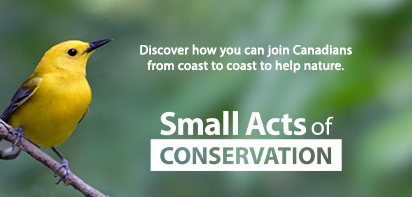Nature Conservancy of Canada announces new East Coast Nature Fund
Charitable land trust eyes new projects on Prince Edward Island
Prince Edward Island and the Atlantic provinces are known for their spectacular views and amazing wildlife, and a national land conservation group wants to safeguard more areas for wildlife, plants and people. The Nature Conservancy of Canada (NCC) is marking its 50th anniversary in the region by announcing the East Coast Nature Fund.
The charitable land trust is appealing to people, businesses, foundations and all levels of government to help lay the foundation for NCC’s next 50 years by helping the organization protect more of our country’s forests, wetlands and coastal shoreline areas. NCC’s protected areas also contribute to Canada’s international target of protecting 30 per cent of its lands and waters by 2030.
NCC is presently raising funds to purchase two new sites near Percival River. These would add another 65 hectares to the Egmont Bay nature reserve, which is currently 338 hectares in size. By protecting much of the Percival River estuary, NCC is helping PEI buffer itself against storm surges, rising sea levels and other extreme weather events.
“Nature Conservancy of Canada properties around the mouth of the Percival River act as massive natural sponges, soaking up excess water and guarding the island against shoreline erosion,” said Lanna Campbell, NCC’s Prince Edward Island program director. “This area consists of coastal salt marsh, freshwater wetlands, a predominantly black spruce forest and even eastern white cedar — an uncommon tree on PEI. All of these ecosystems also provide an array of habitats for local and migratory wildlife.”
Since 1978, NCC has worked in Prince Edward Island, and since that time has helped conserve more than 2,400 hectares across the province at 25 different nature reserves. NCC has also helped residents achieve their dreams of seeing their ecologically important properties conserved through land donations and purchases. But more work needs to be done on PEI to address the twin crises of biodiversity loss and climate change.
“With climate change, severe weather and erosion continuing to pressure local infrastructure and communities, NCC is urging people to consider entrusting their lands to save some of the region’s most important habitats,” said Kelly Cain, regional vice president for the Atlantic provinces. “There are many opportunities on Prince Edward Island to create new nature reserves and expand existing ones for plants and wildlife — but also for people to visit and enjoy. Eighty-eight per cent of PEI is privately owned.”
Long-time Maritime business leader Bill Jones has volunteered with NCC for 30 years. He was founding chair of NCC’s Atlantic Regional Board of Directors and also served on the National Board. Jones is encouraging people and businesses to contribute to the East Coast Nature Fund and the conservation and enhancement of our natural areas.
"NCC is Canada’s leader in private land conservation and has an excellent information and knowledge base,” said Jones. “We have a large diversified undeveloped Canadian landmass, plus NCC’s dedicated, committed capable staff, volunteers and donors. We are well-prepared to grow our NCC-protected natural areas with the financial assistance from our new East Coast Nature Fund."
The NCC Atlantic Region Board of Directors chair is Ann Worth of Bonshaw.
People can learn more about Percival River and other natural areas on PEI on our website.
Facts
- To date, NCC has created over 100 nature reserves in Atlantic Canada by working with private landowners and donors. This has resulted in over 460 conservation projects, including 142 land donations, and placed 35,000 hectares of ecologically sensitive habitat into conservation status.
- NCC sites in Atlantic Canada are home to 38 at-risk wildlife and plant species, including nine endangered, 16 threatened species and 13 listed of special concern.
About
The Nature Conservancy of Canada (NCC) is the nation's leading not-for-profit, private land conservation organization, working to protect our most important natural areas and the species they sustain. Since 1962, NCC and its partners have helped to conserve 14 million hectares, coast to coast to coast.
Learn More
Follow us on on X (formerly Twitter): x.com/NCC_CNC | x.com/NCC_CNCMedia
Find us on Facebook
- 30 -




